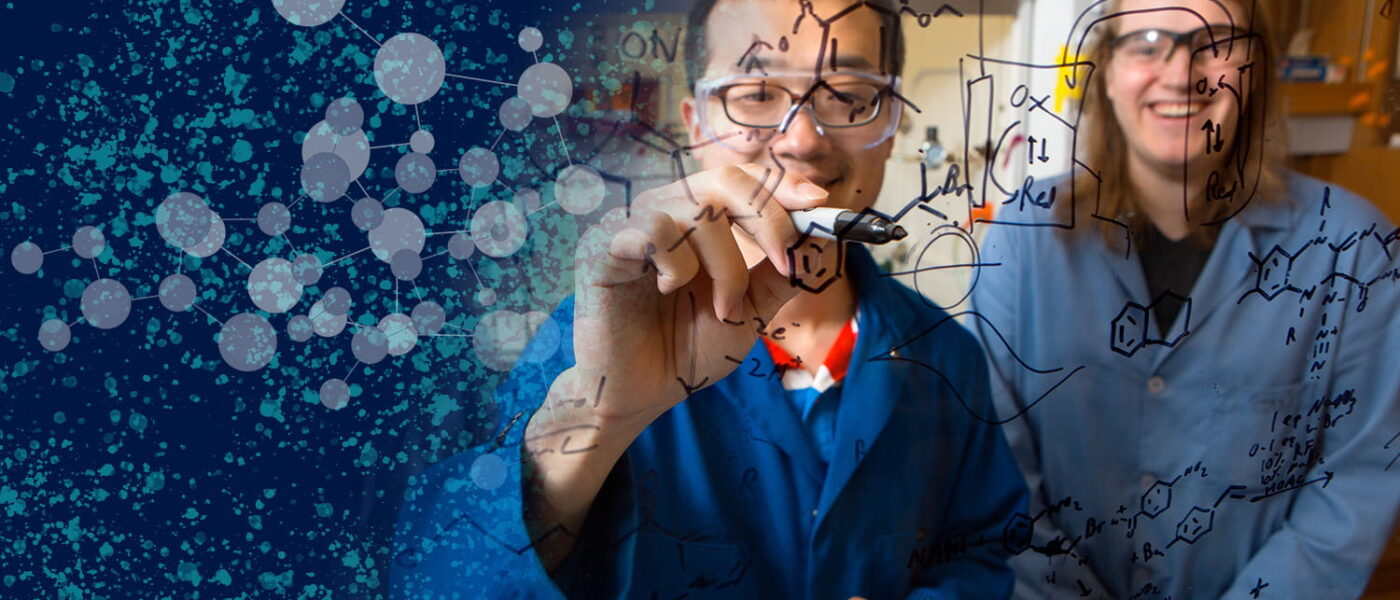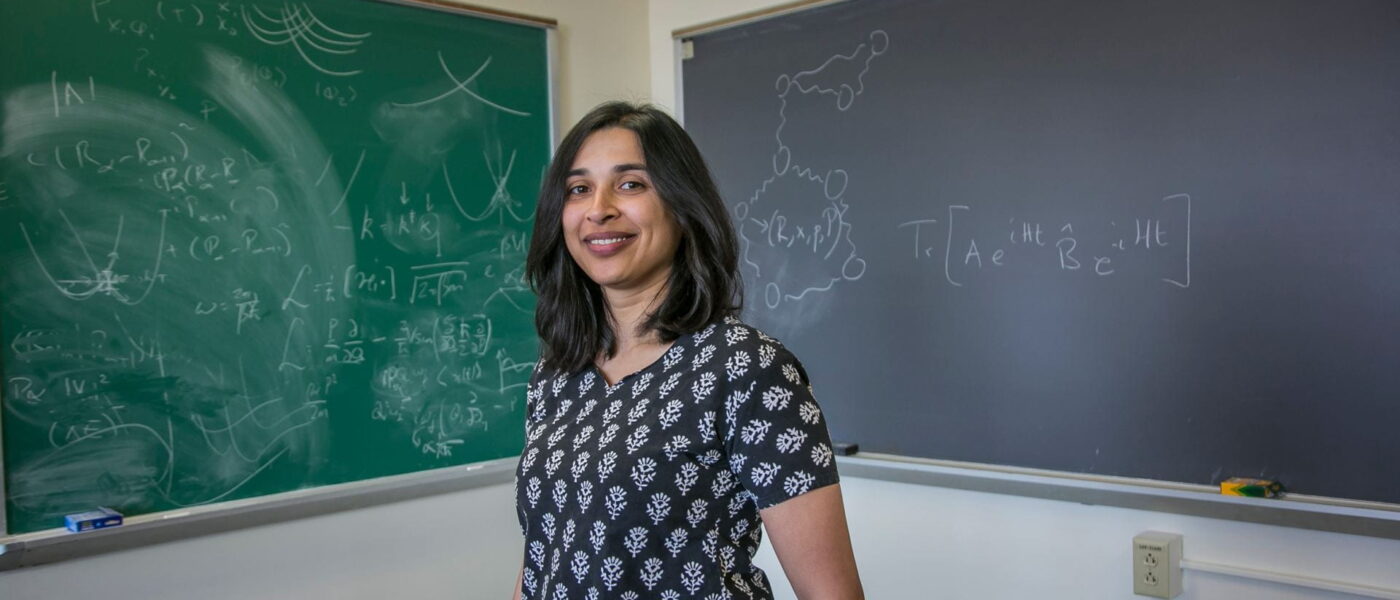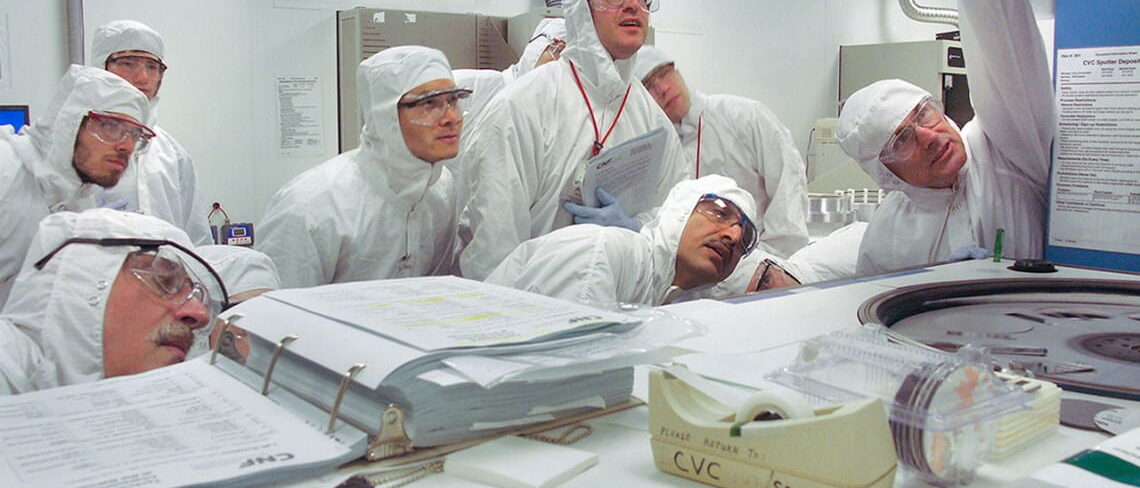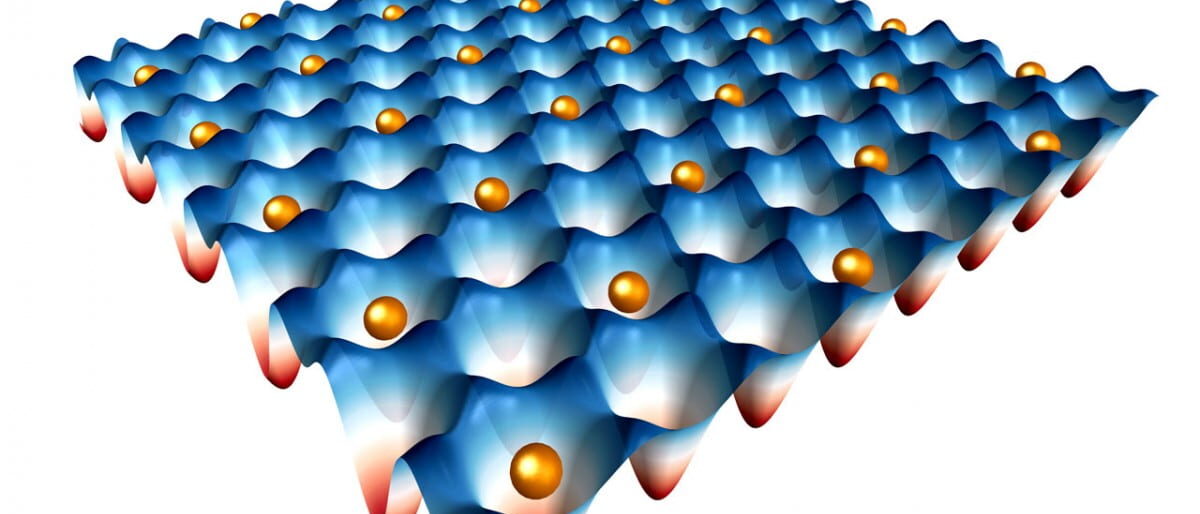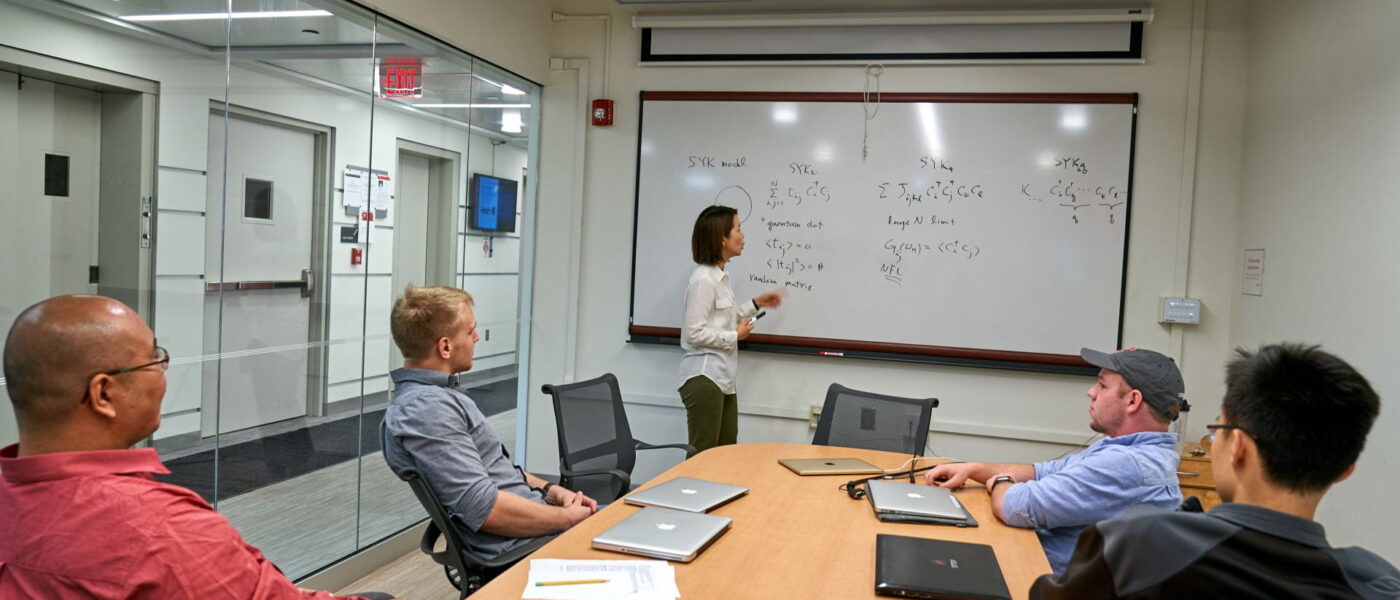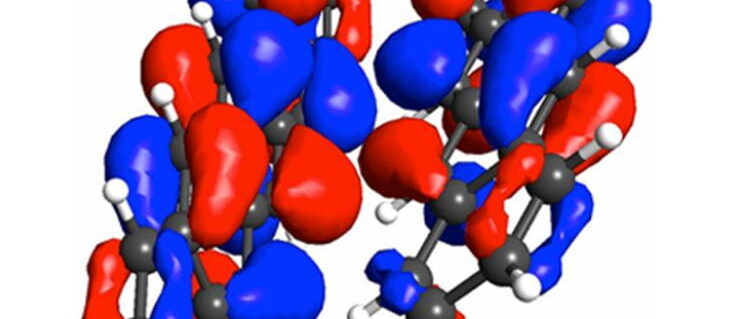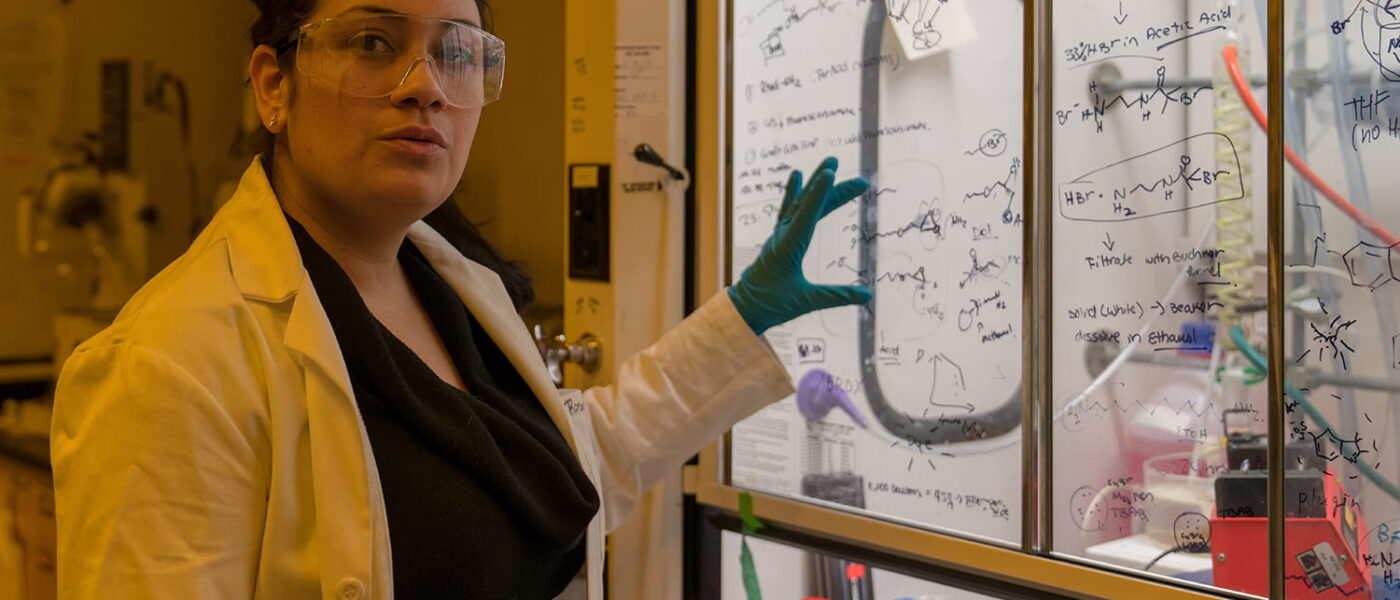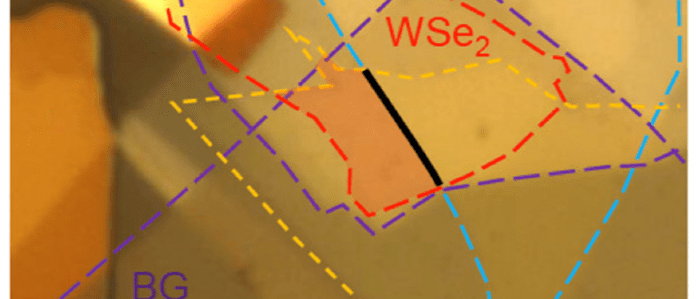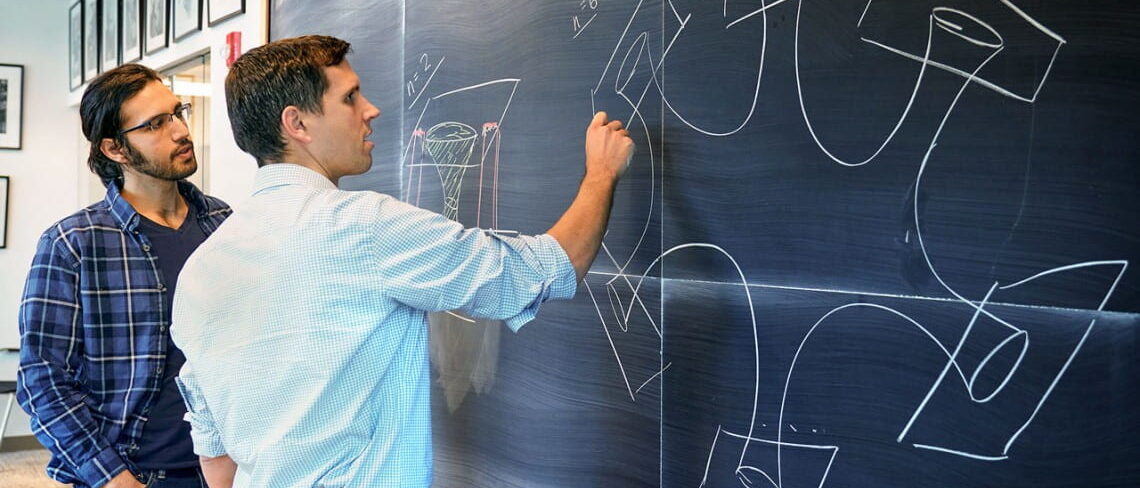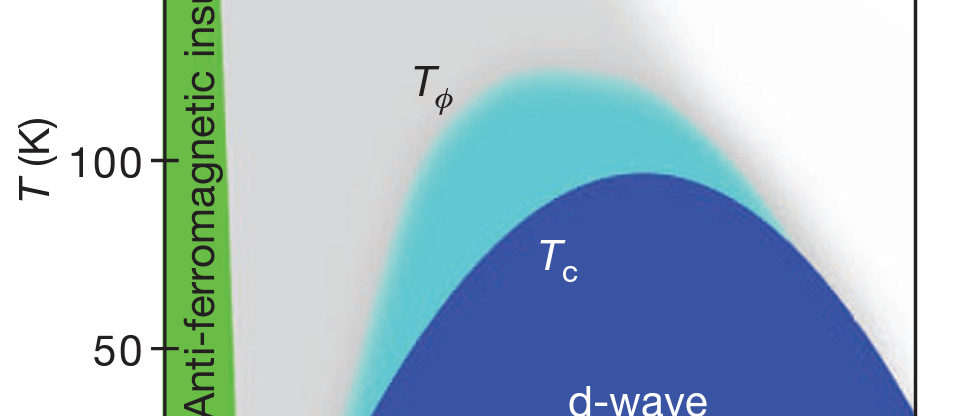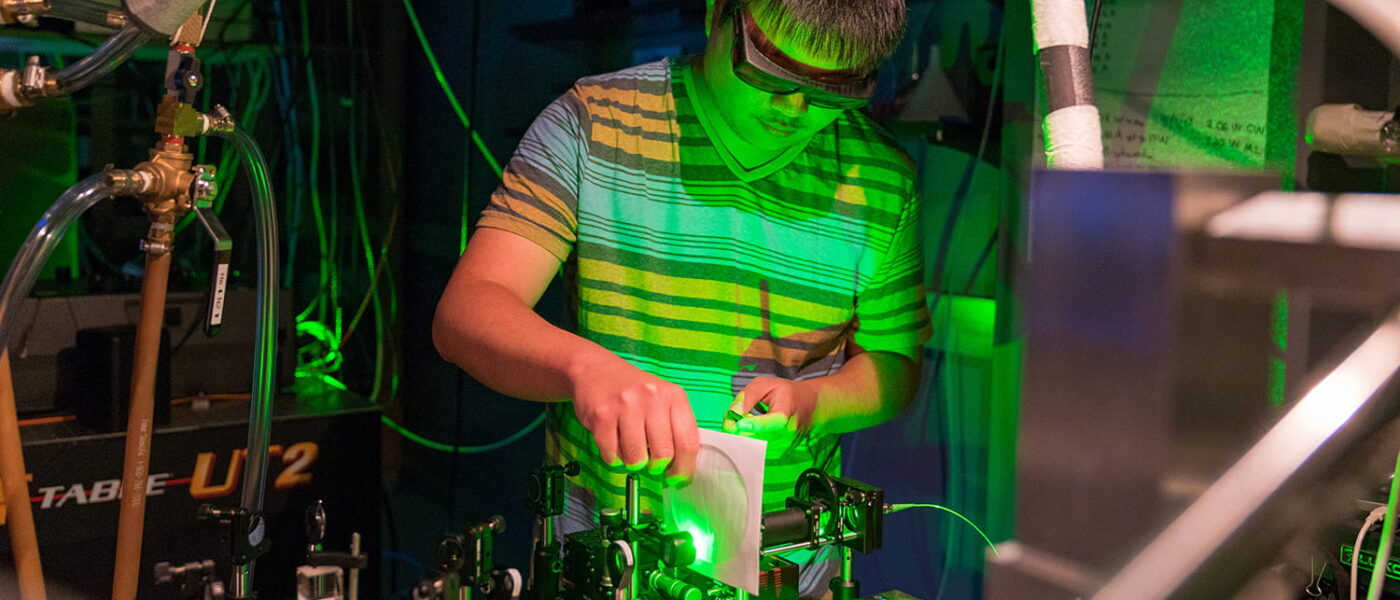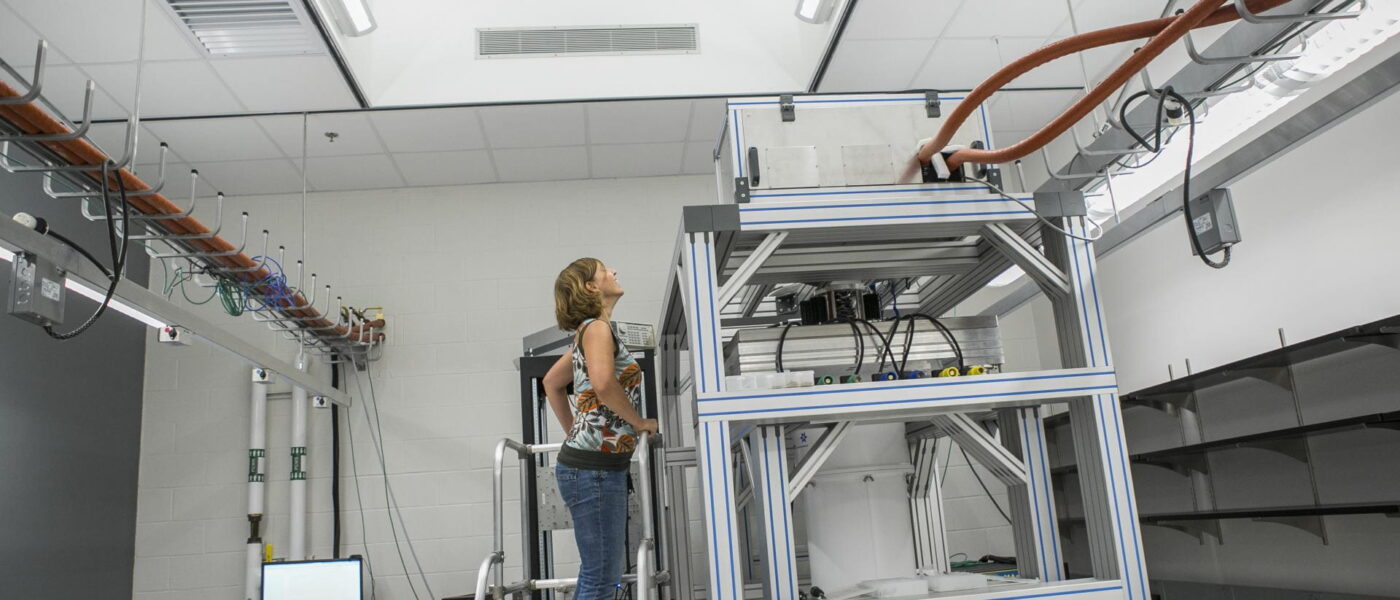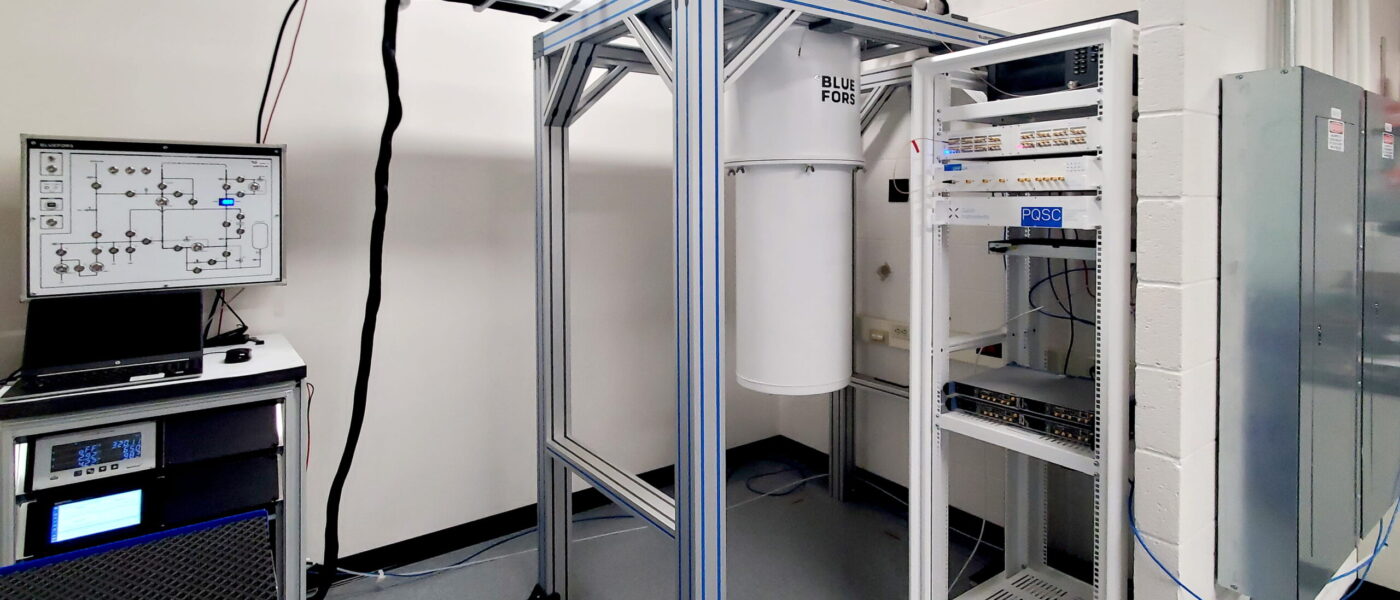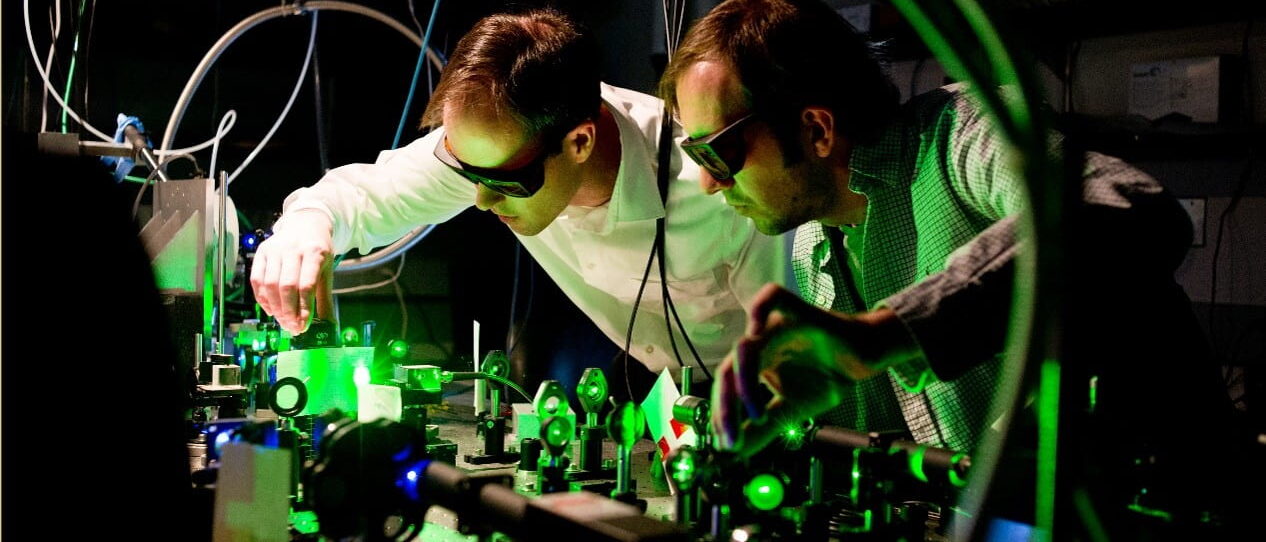Quantum Science and Engineering at Cornell
Cornell’s Ithaca campus is home to a broad range of investigations into the quantum-mechanical nature of our world and universe, as well as the study of how to harness effects that are uniquely quantum mechanical for producing new technology in computing, communication, and sensing.
This website serves as a central source of information about who is working on quantum science and engineering at Cornell, what research areas we cover, and what quantum-related events are taking place.
Upcoming Events
New! Meehl Cryostat Available for Use
News and Breakthroughs

Electrons stay put in layers of mismatched ‘quantum Legos’
Electrons can be elusive, but Cornell researchers using a new computational method can now account for where they go – or don’t go – in certain layered materials.
Physics and engineering researchers have confirmed that in certain quantum materials, known as “misfits” because their crystal structures don’t align perfectly – picture LEGOs where one layer has a square grid and the other a hexagonal grid – electrons mostly stay in their home layers.
This discovery, important for designing materials with quantum properties including superconductivity, overturns a long-standing assumption. For years, scientists believed that large shifts in energy bands in certain misfit materials meant electrons were physically moving from one layer to the other. But the Cornell researchers have found that chemical bonding between the mismatched layers causes electrons to rearrange in a way that increases the number of high-energy electrons, while few electrons move from one layer to the other.
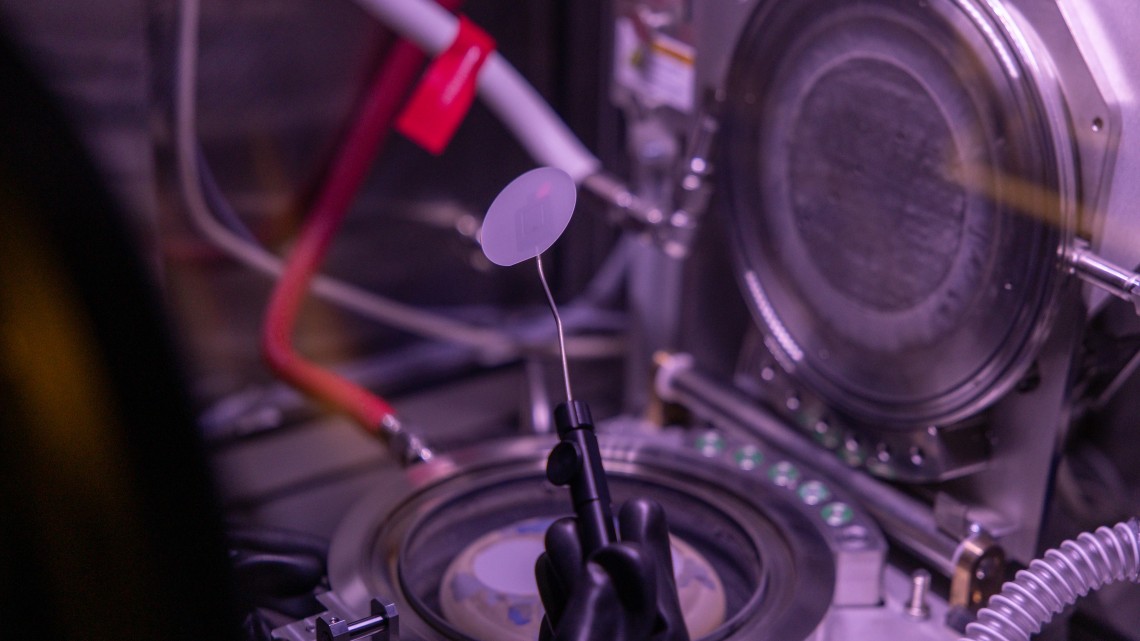
MOCVD system to drive exploration of next-gen nitride materials
A laboratory upgrade at Cornell will help forge new directions for nitride semiconductors – materials best known for enabling LEDs and 5G communications – by expanding the capabilities of nitrides to support technologies such as quantum computers and next generation radiofrequency and power devices.
The upgrade includes the installation of a custom-built, metal-organic chemical vapor deposition (MOCVD) system in Duffield Hall. The system works by injecting vapors of carefully designed chemicals, known as precursors, onto a heated substrate, where the materials react and form ultra-thin crystalline layers. This process, known as epitaxial growth, allows researchers to build semiconductor structures with atomic-level precision and performance.
MOCVD has been used to grow the traditional family of nitride semiconductors – gallium nitride, aluminum nitride and indium nitride – that revolutionized energy-efficient lighting and high-frequency electronics.
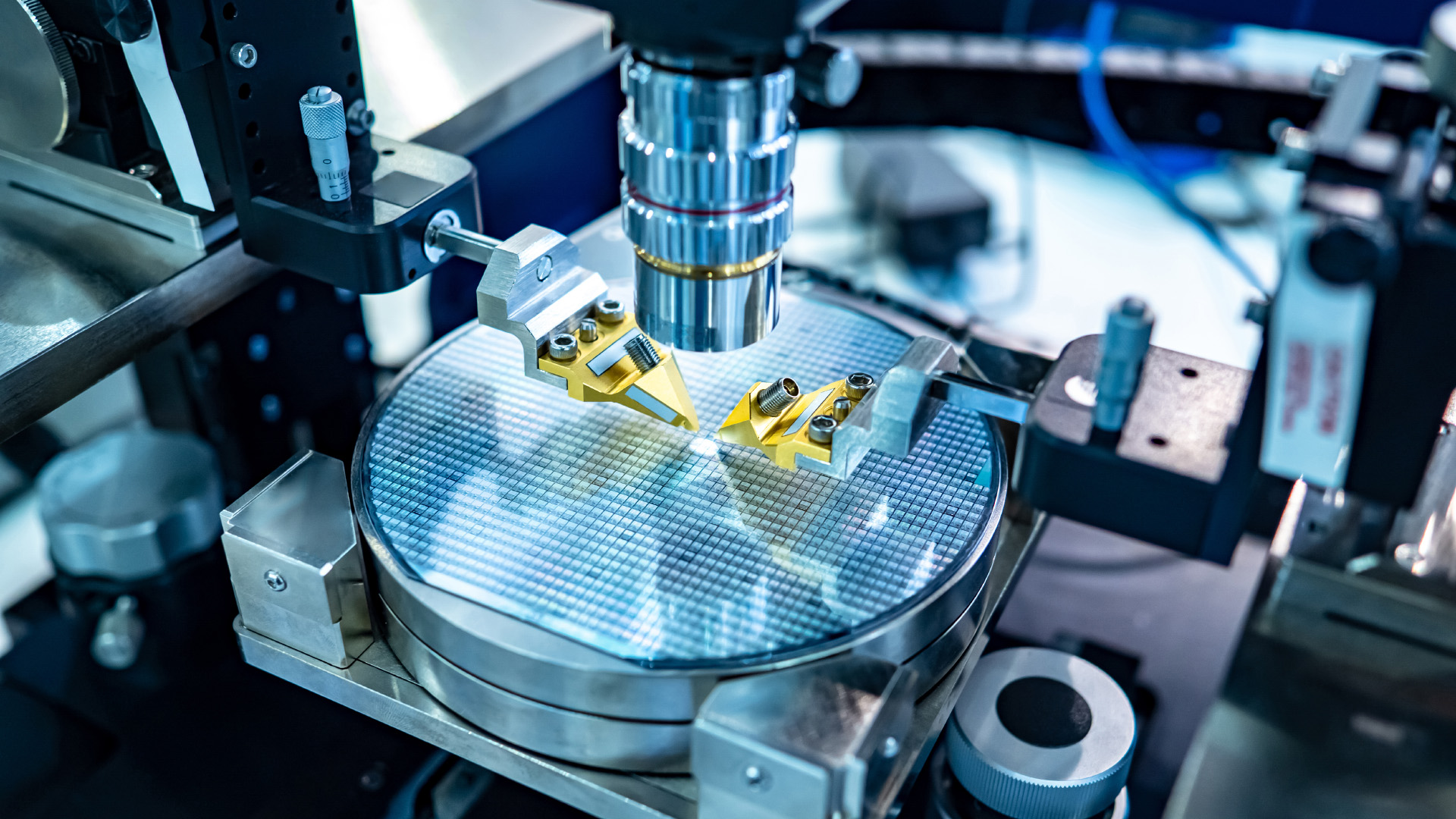
Programmable optical chip merges photons to change color
Cornell researchers have built a programmable optical chip that can change the color of light by merging photons, without requiring a new chip for new colors.
This form of nonlinear photonics could potentially be used for classical and quantum communications networks, all-optical signal processing and computation, spectroscopy and sensing.
“Previously, for each combination of colors you wanted to produce, you needed to fabricate a new device with a different design,” said Peter McMahon, associate professor of applied and engineering physics in Cornell Engineering, who led the project. “We now have a sort of universal device that lets you do any conversions you want, reprogrammably.”
The findings were published Oct. 8 in Nature. The paper’s first author is Ryotatsu Yanagimoto, a former postdoctoral researcher in the McMahon Lab and visiting scientist from NTT Research.
If you’re working on quantum research at Cornell and would like to contribute material to this website, please email quantum@cornell.edu.

